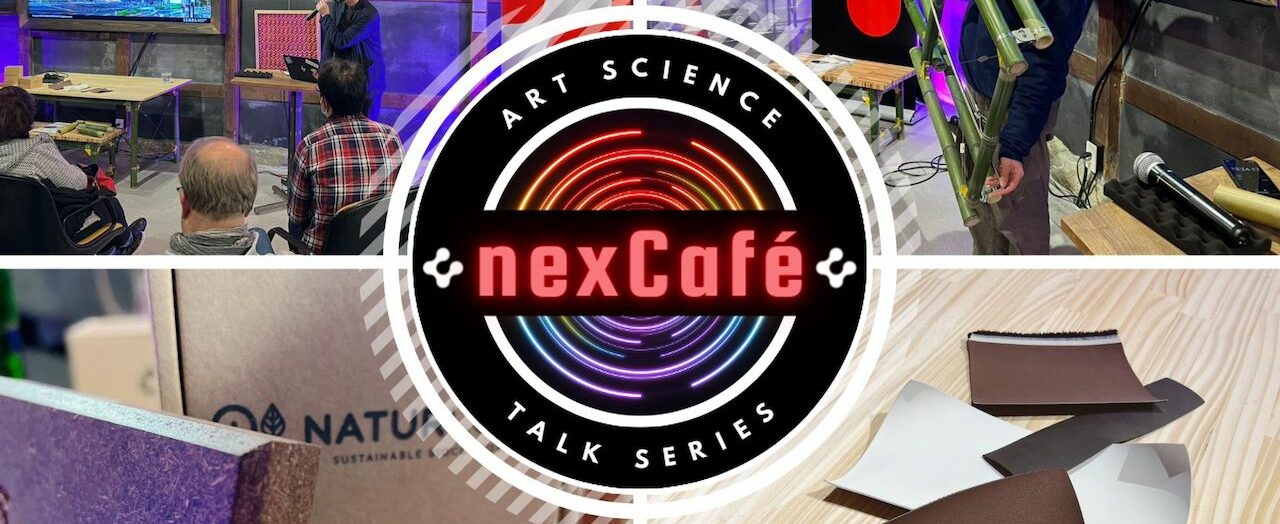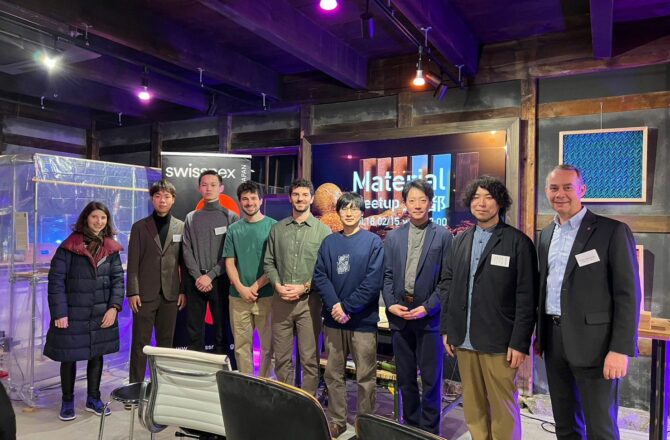

Moving forward with practical and realistic applications of sustainable materials for a sustainable world
It has been a pleasure to host the third edition of our nexCafé art-science talk series at FabCafe Kyoto. Co-organized with FabCafe, we invited NaturLoop, a Swiss-based materials science startup, and PEEL Lab, a B2B green tech for plant-based leather products. Followed by an exclusive presentation about ethical materials and spatial design, we also invited designers to discuss the usage of sustainable materials in architecture.
This Material Meetup – already the 18th at FabCafe Kyoto! – was an incredibly thought-provoking event. It highlighted the potential of new materials. The speakers not only discussed the importance of using recycled materials and creating products that use fewer resources, but also explained how to incorporate function and beauty into the design.
Daniel Dinizo, CEO of NaturLoop, presented his product Cocoboard®. Made of coconut husks and bio-based adhesive, it is the first 100% bio-based board and therefore a sustainable alternative to medium density fiberboards (MDF). NaturLoop advances sustainable development through the utilization of domestically available resources, and integration of farming communities in the value chain. Cocoboard® has already been implemented in several housing projects and furniture.
Website: Naturloop
Bilguun Battur, currently an intern at PEEL Lab, presented the unique “Pineapple Leather” made entirely from fruit and vegetable scraps leftover from food processing. More than just an alternative to leather, their product actually contributes to the environment by reducing waste, emissions and other pollutants that impact our planet. By providing full-range design and production services, PEEL Lab is on a mission vision to enable every corporate to create personalized products using pineapple leather and other plant-based leather.
Website: PEEL Lab
The third speaker of the event, Akira Kanbe from the Semba Group, is designing spaces for a wide range of facilities such as shops and restaurants, offices, hotels, educational, healthcare, and leisure facilities. Semba’s concept of “Ethical Design” is to co-create a better society throughout the supply chain that includes not only “making” but also “using” and “disposing”. Semba proposes Circular Renovation®, an ethical design framework that creates new value by restructuring the supply chain to recycle used and discarded resources.
Website (only Japanese): Semba Group
Hiroshi Ohno from Studio On_Site reconstructs region-specific architecture by utilizing materials rooted in the land and the techniques of craftsmen, and creates architecture with the background of local life. He presented the product OKINA, a special bamboo joint that allows anyone to easily make furniture and tents using bamboo with a single impact driver.
Website: Studio On_Site